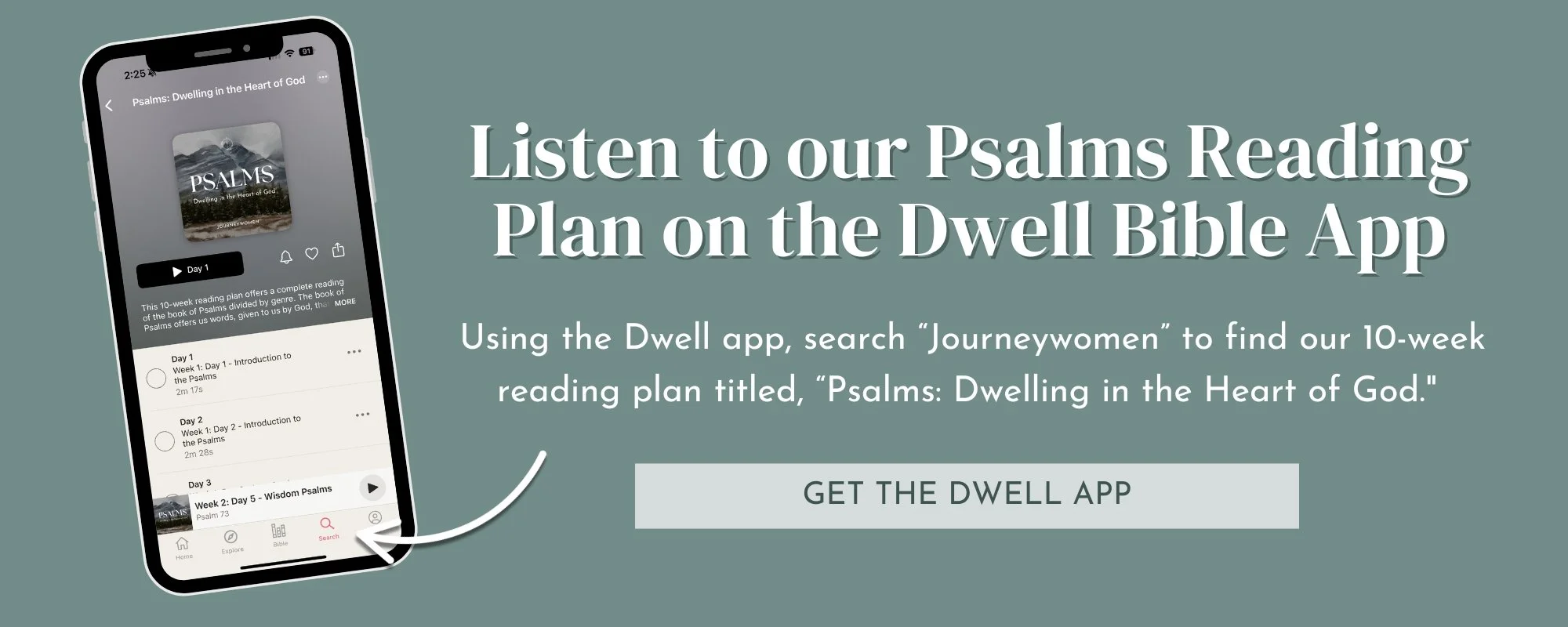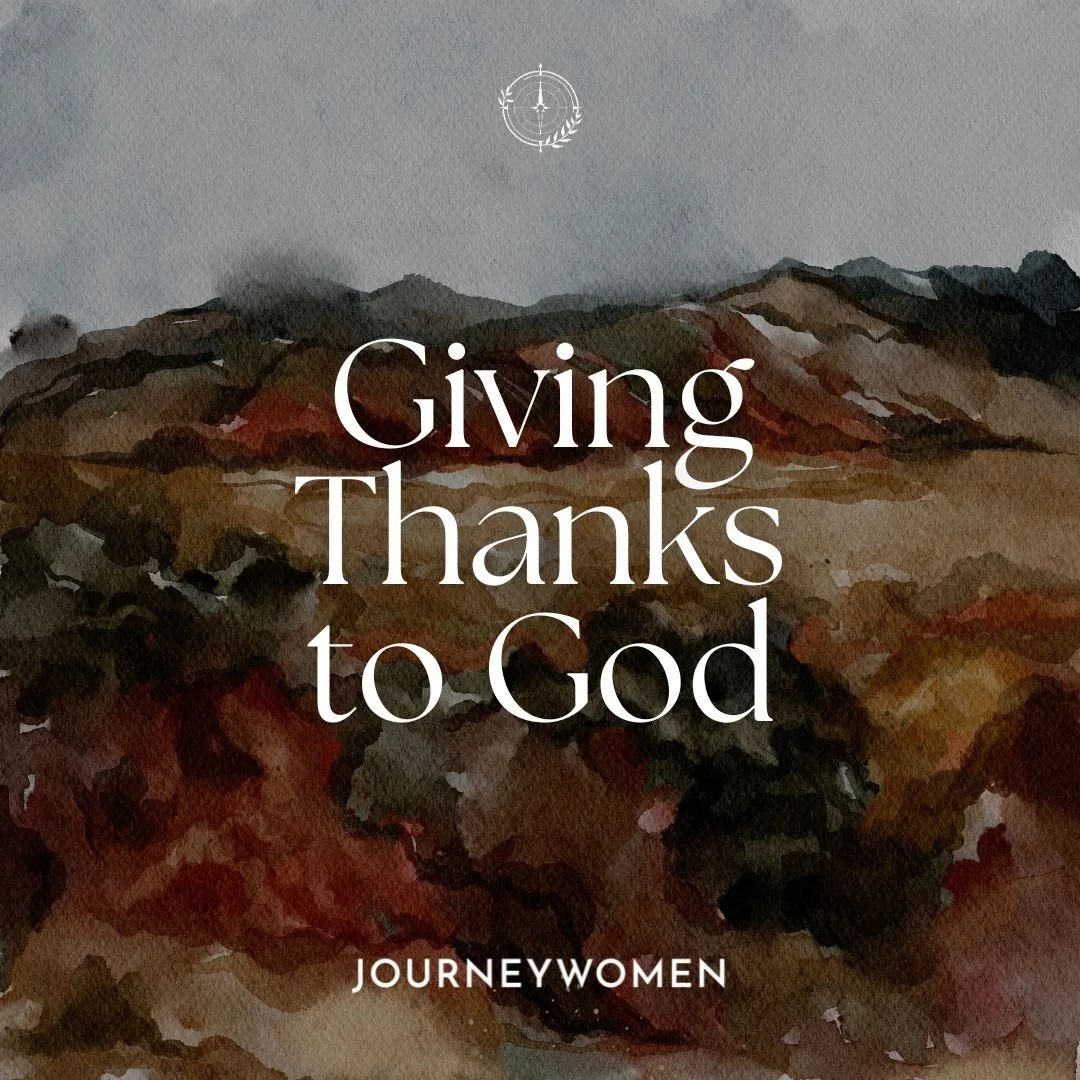God Draws Near in Our Pain
The entire book of Psalms highlights a weighty tension that I am sure you’ve wrestled with in your own life and in your interactions with those you love. It’s that tension between darkness and beauty, joy and sorrow, lament and praise. As we spend time in these psalms of individual lament, we’ll enter some dark places…we’ll see the psalmist wrestle through doubts, fears, and even anger. But we’ll also see that the psalmist doesn’t leave us there. He is always ushering us toward hope. And he so beautifully teaches us a lesson: that lament and praise can be held in the same hand and sung in the same song.
In this week’s episode, we look at the individual lament psalms, or those that express grief or sorrow to God. These psalms are weighty, but they offer us a beautiful example of how lament can lead us to hope.
INDIVIDUAL LAMENT PSALMS OVERVIEW
The psalmist so beautifully teaches us a lesson: that lament and praise can be held in the same hand and sung in the same song.
Lament psalms are those that express grief or sorrow to God.
David remembered the character of God, and he allowed his fear to lead him to faith. David remembered who his God was—and that is not a God who is far off.
“The refiner is never far from the furnace when his gold is in the fire.” - Charles Spurgeon
No matter what you are walking through, you can know that God is not blind to your suffering and he is not deaf to your cries. We have the boldest assurance of this, a security that our God is never far away… Because the depths of his love was clearly shown as his own Son hung on the cross, forsaken in his darkest moment as he bore our sin so that in our darkest moments we would never be forsaken.
Sometimes God allows us to feel deep pain and abandonment, but the truth is, we are never alone.
Even in the midst of the moments of darkness, our God is ever-near, he hears our cries, and he cares deeply for us.
David knew that there was hope because he knew that God’s love was more steadfast than the circumstances of his life. He was able to firmly place his hope and his trust in God.
We can honestly cry out to God about the brokenness of the world, but we can also know that God has not left us without hope.
Three thousand years ago David hoped in God to be his refuge and his salvation; today we too must have confident hope in the character of God and the accomplished work of Jesus Christ. He has secured our hope through the life, death, and resurrection of Christ. He has promised to be with us always, even in the darkest places. He is ever-present, all-powerful, steady, unchanging, a refuge, a place of safety, protection, and salvation.
Our God is the one who is called the “Man of Sorrows” (Isa.). Because he bore the sorrow of the world, our sorrow now does not last forever. Because he took our sin, we can now approach his throne of grace in our time of need. Because he hung on the cross in our place, we will now never be rejected by God (2 Cor. 5:21). Because of Christ, even in our sadness, we have the greatest reason to hope.
As you walk through the seasons and challenges of life, may you be quick to turn to the Lord in the midst of difficulty. May you remember his character and fight to believe the truth—that he is compassionate, kind, sovereign, and near to you always. As your prayers—even your prayers of doubt and struggle—rise to him, may you trust fully in his love for you and his care for you.
RESOURCES
In the Lord I Take Refuge: 150 Daily Devotions Through the Psalms
DISCUSSION QUESTIONS
How does understanding God is near to you and hears you in your difficult circumstances bring you comfort?
How might you practically remind yourself (or someone you love) that God is near in a current trial?
When things are dark and difficult, do you feel comfortable crying out to God with your pain? Why or why not?
How does Jesus’ life, death, and resurrection affect your suffering today?
How do the psalms of lament help give you a language for your own prayers?
RECENT ARTICLES
IMPORTANT NOTE
Journeywomen interviews are intended to serve as a springboard for continued study in the context of your local church. While we carefully select guests each week, interviews do not imply Journeywomen's endorsement of all writings and positions of the interviewee or any other resources mentioned.
Affiliate links used are used where appropriate. Thank you for supporting the products that support Journeywomen!
FOR MORE OF JOURNEYWOMEN
Subscribe: Apple Podcasts | Spotify
Follow Us: Instagram | Facebook
Support the podcast by writing a review



















